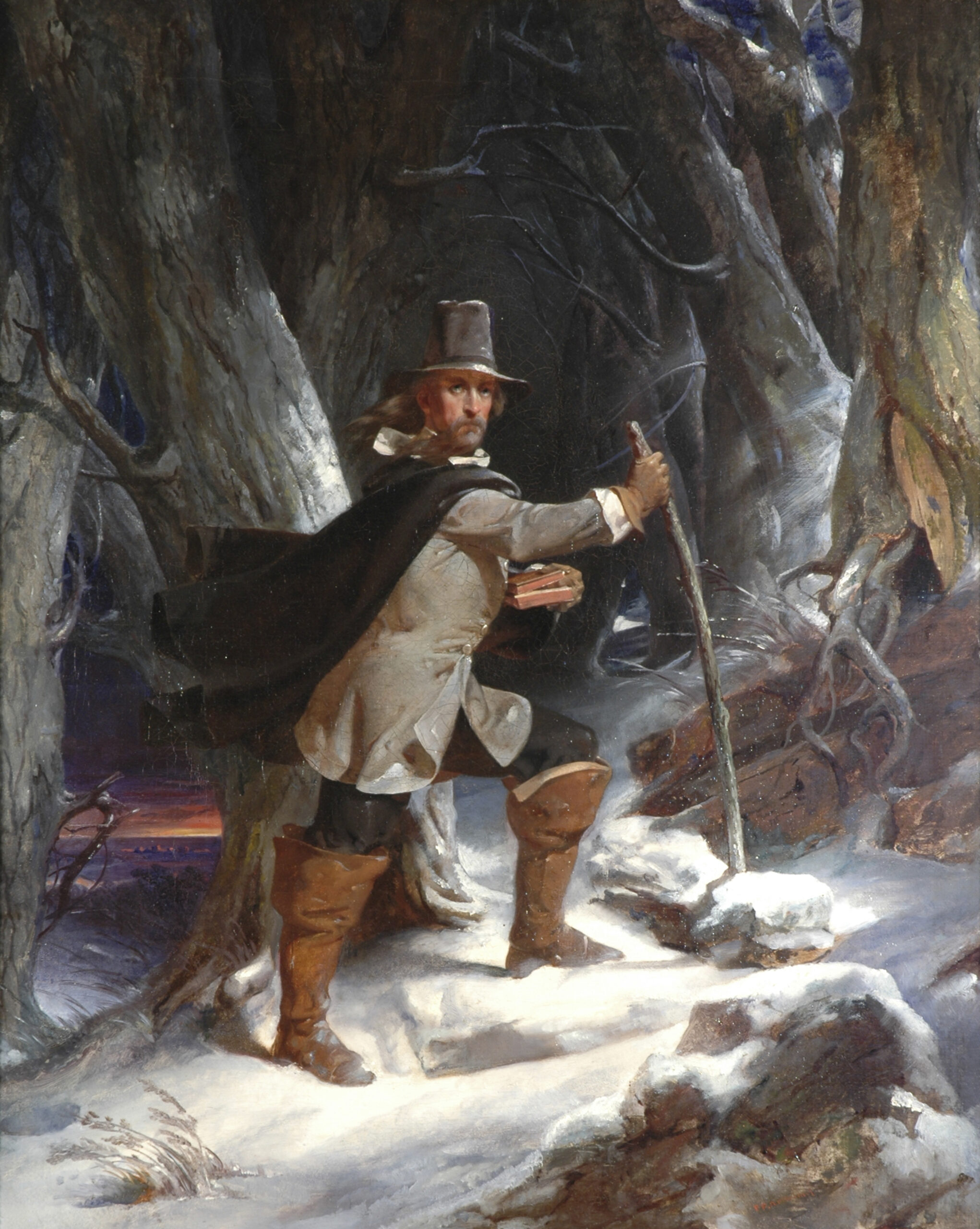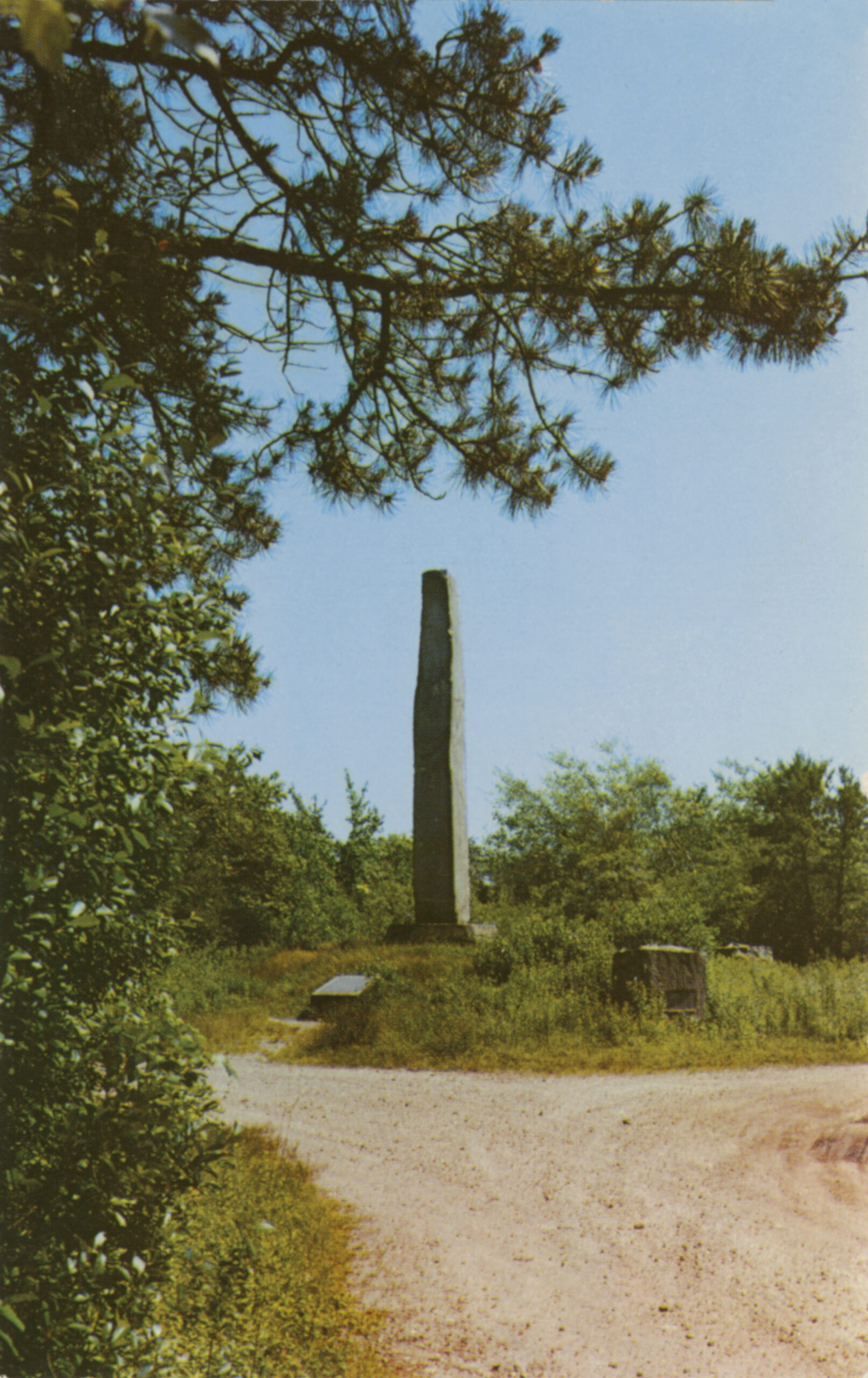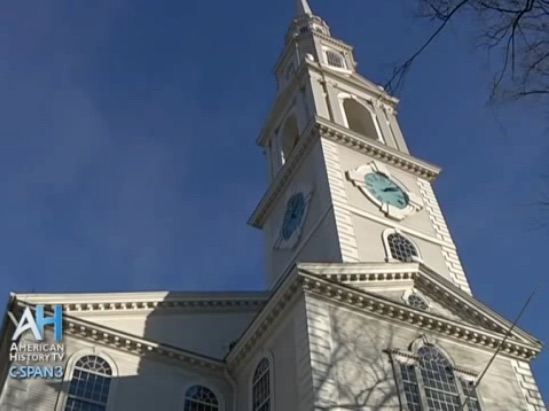Teacher Historical Background
Essay by C. Morgan Grefe, Ph.D., Executive Director of the Rhode Island Historical Society
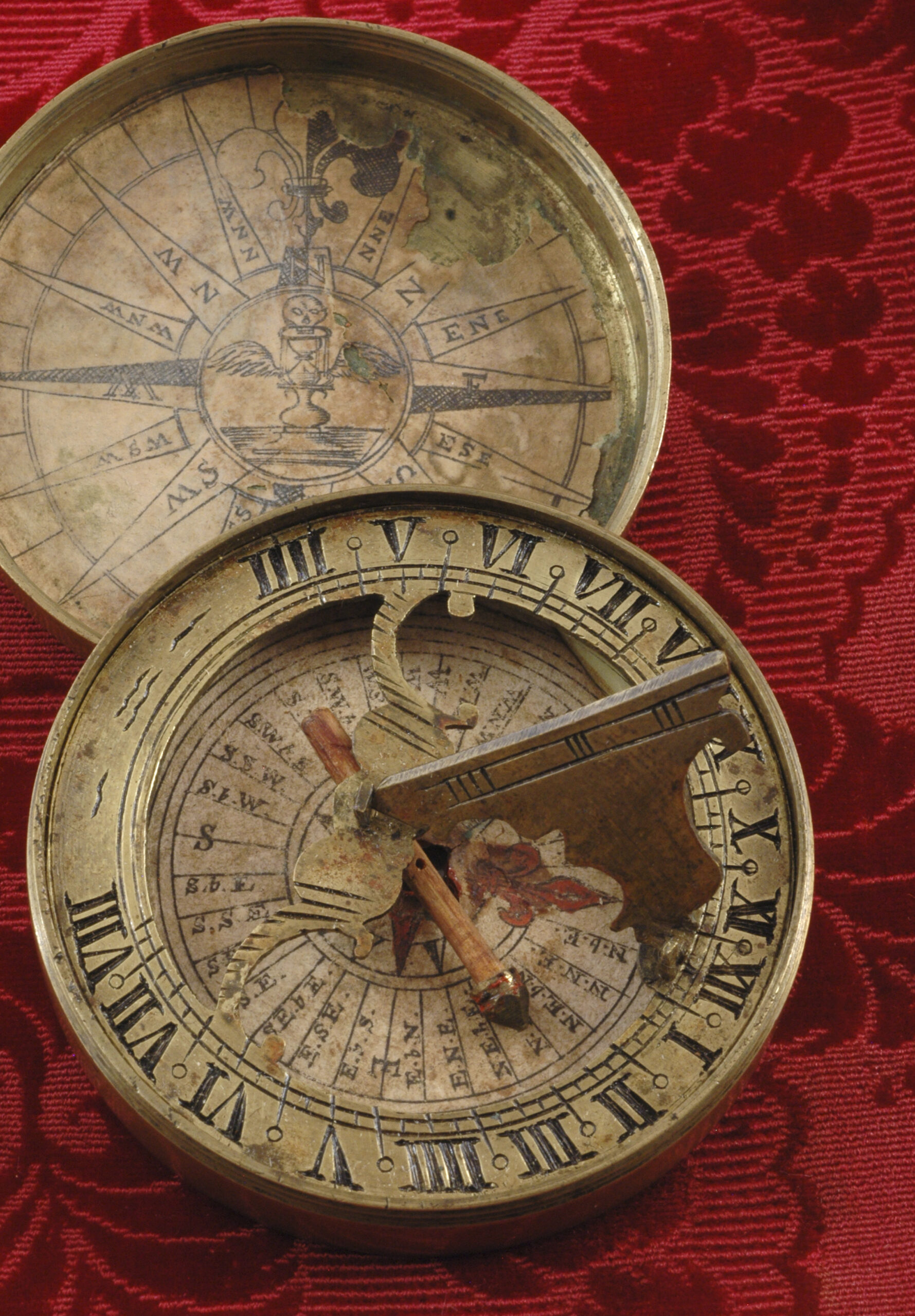
Roger Williams’s Compass
Read about the landscape and environment during Roger Williams' time here
Coming to the New World
On February 5, 1631, at no more than 28 years of age, Roger Williams arrived on the coast of Massachusetts aboard the ship Lyon. He arrived in this harsh new world with only his wife, his library, and his education, with no job waiting for him. He was not a man of means, so he had to find work in the Massachusetts Bay Colony. Luckily, a local minister in Boston was returning to England. The leaders of the Boston church voted unanimously to hire Williams as their “teacher,” a position that, alongside the minister, would allow him to help set the spiritual path for the colony. But Williams, even without money, declined their offer. He stated that he did not believe they were separate enough from England or the English church. It did not take long for the colonists to see Williams as a rebel and a threat. It is here that that new world got the first taste of Williams’s deeply held belief in the separation of church and state.
Not long after, Williams left Boston, the richest city in Massachusetts, for the poorest, Salem. Though these two towns are only 20 miles apart, in the 1630s, one needed a boat to travel between the two. Williams was more sympathetic to the people of Salem, who took a much stricter approach to worship. When John Endicott in Salem offered Williams a post as a teacher in their church without consulting Boston, the leaders in Boston expressed their displeasure. Salem bowed to Boston’s will. This left Roger Williams and his wife with little choice other than to leave for another colony: Plymouth Bay.
While in Plymouth, Williams did not seek to be a minister or teacher in their church, but he did preach as a member of the church. He mended relationships with the powerful men of the Massachusetts Bay Colony and formed strong friendships with many of them. In contrast to how Williams is often portrayed, while he was opinionated and passionate, he was also well-liked and regarded as kind, even sweet.
While there, Williams supplemented his income by farming and trading with Native communities. Always good at learning languages, Williams soon started to study the Algonquin-based languages spoken by the Wampanoag, Narragansett, and Nipmuck men and women in the community. He thought learning their language and culture would be morally, culturally, and even physically good for the new colonists. Like many people who came to the New World, they intended to share their faith with Native Americans. Although Williams intended to do so, he would not until he could converse with them fluently in their own language. This skill proved to be very useful, if not life-saving.

Musket
Read about King Philip's War here
Williams was happy with his life in Plymouth, but he was becoming increasingly vocal in this criticism of the English government. Even though the Puritans sought to separate from the English Church, they were still English citizens, and Williams’ words often bordered on treason. After years of reprimands and warnings, the courts in Plymouth and Massachusetts banished Williams from the Massachusetts and Plymouth Bay colonies in the winter of 1636 for voicing what they deemed “New and Dangerous Opinions.”
Williams first sought refuge on the banks of the Pawtucket River in what is now East Providence but soon learned this land was still part of Plymouth Bay. But, thanks to his friendships with the many Native peoples of the region, Williams was offered land on which to settle on the edge of the river, near a spring, on what would become the main street of the Town of Providence. And, once he settled there, men and women came from the other colonies to join him, some of their own free will and others banished for their beliefs. What brought these individuals to the lands that would become Rhode Island and Providence Plantations was not a shared belief in one way of living but rather a shared respect for an individual to believe what he or she chose and to do so without fear of imprisonment, death, or banishment.
Forming a Colony of Many Voices
In the fall of 1636, Roger Williams drafted a “civil compact.” It was adopted at a town meeting in the tiny settlement of Providence on August 20, 1637. The compact states that the government would have authority only over “civil things,” therefore allowing for religious freedom and liberty of conscience. Following Providence’s example, Portsmouth and Newport wrote their own town agreements and formed civil governments in 1638 and 1639.
It is important to remember that as important as Roger Williams was and continues to be, he was not the only colonial “founder” of Rhode Island. The land around Providence was soon settled by other like-minded men and women from the Massachusetts and Plymouth Bay Colonies–some of whom chose to leave and others who were banished. In the first decade of the colony, Williams was joined by people such as Anne and William Hutchinson and William Coddington, who all founded Portsmouth in 1638, Samuel Gorton who settled Warwick, Richard Smith who, with Williams, colonized Wickford, and William Harris and the Arnolds who settled Pawtuxet.

Narragansett Basket
Learn about trade between the Indigenous peoples and the English colonists here
In 1643, Williams published his first book, A Key into the Language of America: A help to the Language of the Natives in that part of America called New England.1See a transcription of Williams’ A Key into the Language of America on Project Gutenberg [link] This was the first dictionary of the Native people of this region, but it was almost a textbook, as well. In the book, Williams explains how the Native peoples live, eat, and worship, among other things. It served as an invaluable resource to travelers, settlers, and traders into the twentieth century, as there was nothing that could compare to its comprehensive nature for more than 200 years.
Roger Williams continued to write about his beliefs, as well. His most famous book was published in 1644: The Bloudy Tenent of Persecution2See a copy of Williams’ The Bloudy Tenent of Persecution on the Internet Archive [link]. This book presented the public with the true meaning of religious freedom for Williams, and the need for the church to be protected from the government’s authority—and the protection of individuals from a state-imposed religion. The separation of church and state, a founding belief of the United States, was part of a wider conversation in England that had been raging since the time of Williams’ birth in 1603. However, what made Williams different was that he was no longer an oppressed person. While he was threatened with deportation or hanging for preaching his beliefs in Massachusetts, now he was in a position of power in this new colony.
The English Parliament ordered all copies of The Bloudy Tenent burned, but Williams continued to argue and fight for the creation of a colony in which the liberty of thought and freedom of expression was a founding ideal.3John M. Barry, Roger Williams and the Creation of the American Soul: Church, State, and the Birth of Liberty, (New York:Viking Press, 2012) 446.
By the 1650s the area’s diverse colonial communities came together to affirm and formalize a shared commitment to religious freedom and democracy. A delegation was sent to London to obtain a charter to ensure their rights.
In fact, at the time Williams was publishing his book, he was in England securing a “patent” for Rhode Island (in this case, a patent would be an official statement by the English government that Williams had the right to establish the colony). In 1643, he succeeded. Williams was actively seeking and crafting a community based on his beliefs, and in this land, he was settling, he was free to do so. The British Parliament would issue a second patent in 1647 that united Providence, Portsmouth, Newport, and Warwick.
In 1651, William Coddington obtained a commission to form a government for Aquidneck and Connanicut Islands. This document effectively nullified the 1643 Parliamentary Patent and made Coddington governor for life. This outraged many residents, and there was a popular movement to revoke or replace this commission. Roger Williams and Newport’s John Clarke and William Dyer traveled to England to do just this. The commission was revoked in 1653, and Dyer and Williams returned to Rhode Island. John Clarke, however, remained.
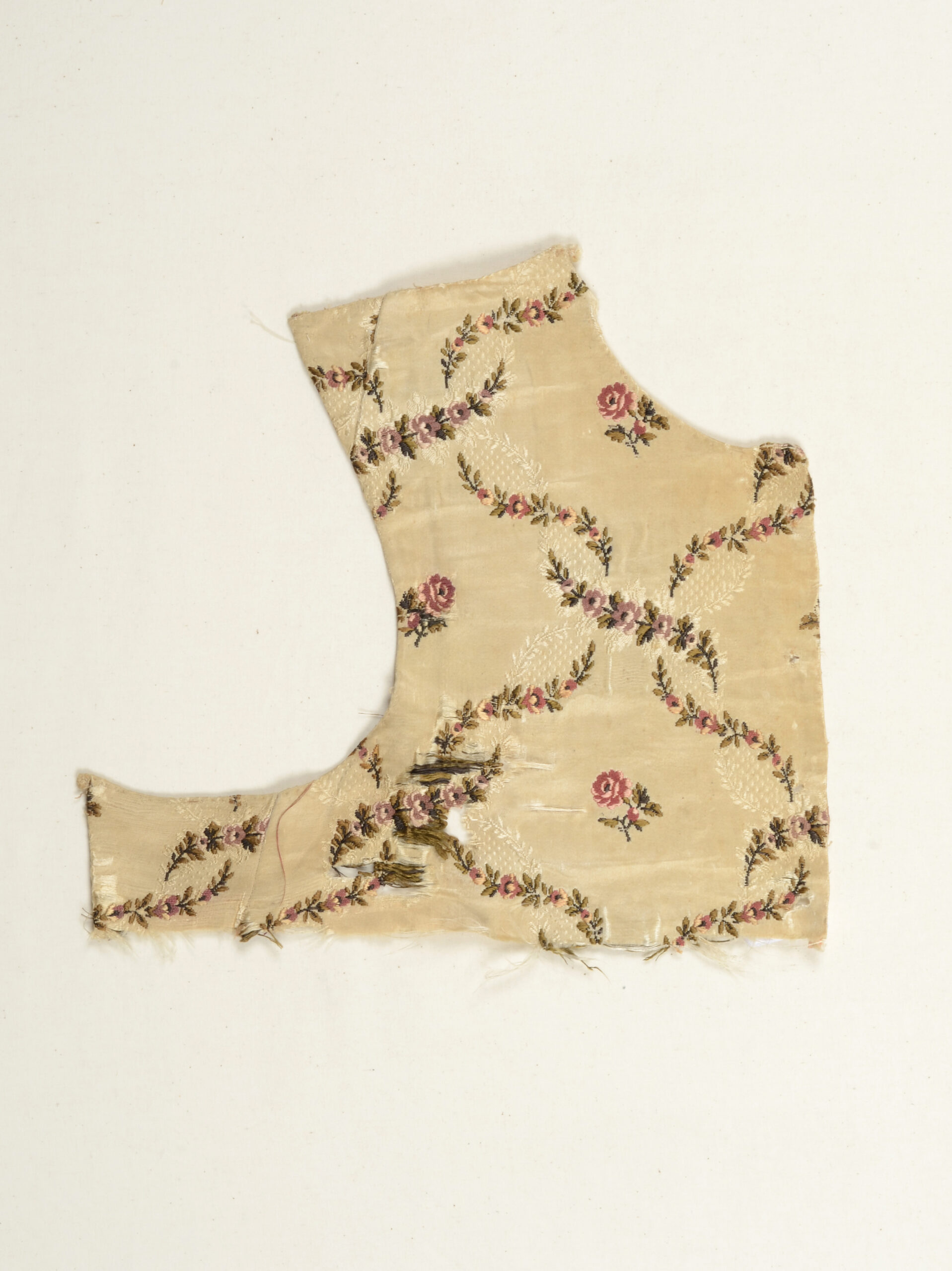
Waistcoat
Learn more about fashion here
In spite of many local disputes, residents of Rhode Island had become increasingly determined to obtain an official charter from England that would unite them and protect their way of life: religious freedom, separation of church and state, and a form of self-governing democracy. Concerns about preserving their freedoms were joined by the very real threats that were posed by neighboring settlements in Massachusetts and Connecticut. These colonies saw the potential to annex Rhode Island’s, while at the same time putting a stop to what was perceived as a dangerous set of ideas about religious freedom.
It took nearly twenty years and the expert help of a real diplomat, Dr. John Clarke of Newport, to turn Williams’s philosophy into a legal document that could shape the whole colony of Rhode Island and Providence Plantations: the Royal Charter of 1663.4See a copy of the Royal Charter on the RI Secretary of State’s webpage [link]
According to one of the most renowned historians of the twentieth century, Dr. Edmund Morgan, Roger Williams wanted to make sure that Rhode Island and Providence Plantations became a place in which people from any background, religion, or nationality could make their own way. It did not mean that their faith, or lack thereof, would be celebrated, nor that they would be free from the scorn of the deeply religious men like Williams. Williams expected people to disagree, and disagreement and discourse were a necessary part of this New World democracy that Williams was making. In civil matters individuals were on equal ground, something that many modern Americans take for granted, but which was a very different model of government from other Puritan colonies and other countries at that time.5Edmund S. Morgan, Roger Williams: The Church and the State (New York: W. W. Norton & Company) 2006, 137.
.
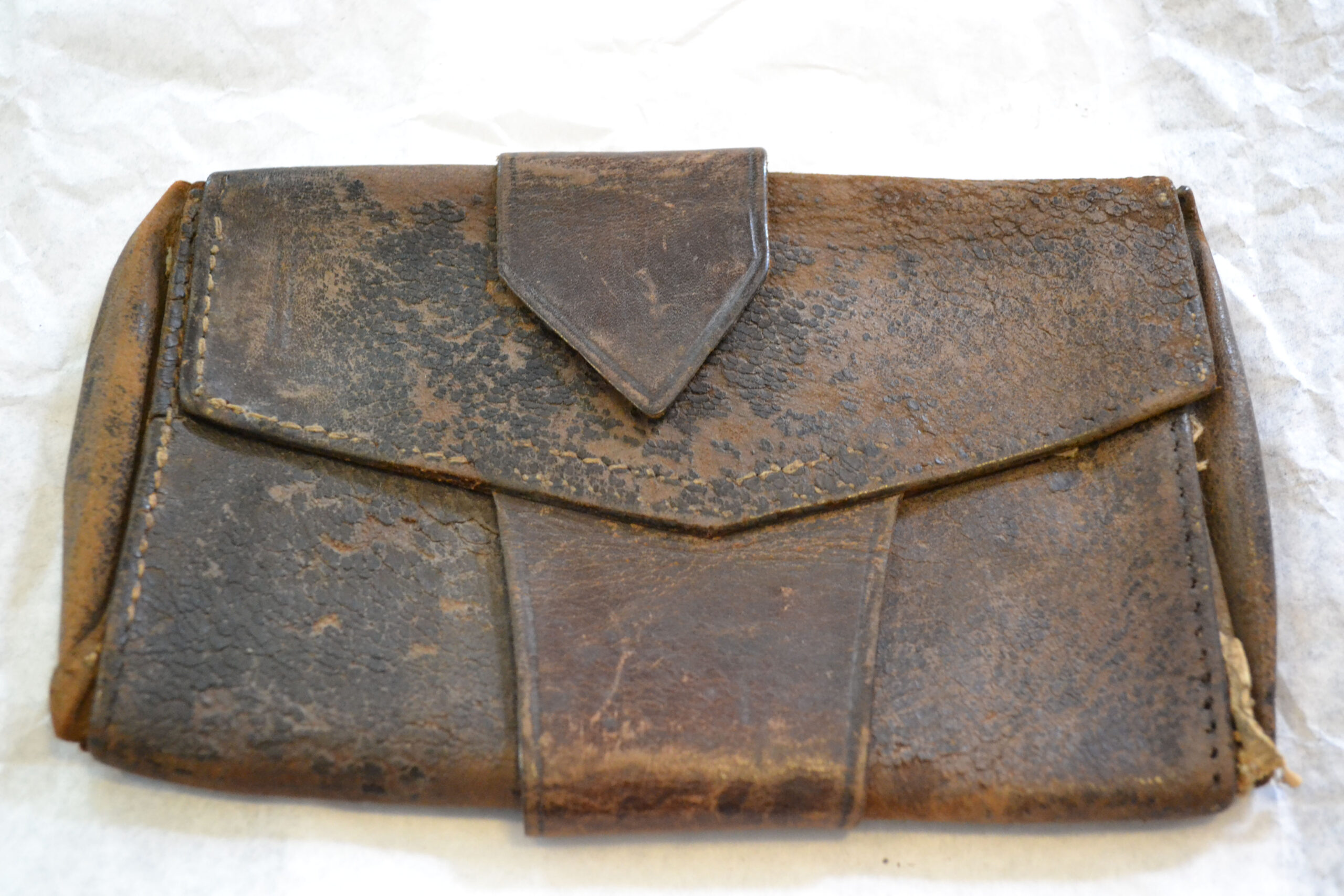
Roger Williams’s Wallet
Read about forms of currency during Roger Williams' time here
In brief, Rhode Island was a place where anyone could ply a trade, be it as a cooper, merchant, or minister, and do business with anyone else of different creed or color. Such was not the case in our neighboring colonies, in which trading with non-Christians was often seen as a sin in the eyes of God and often illegal in the eyes of man. Rhode Island, therefore, was always a safe place where anyone could do business. It attracted men and women who had ideas and skills but who may also have had unpopular customs or beliefs and allowed them to flourish. This ideal did create diversity, and supported freedom, but it did not prevent injustice. While soul liberty did not keep Rhode Islanders from enslaving African and Native Americans and did not afford women the same rights as men, the ideas of religious freedom and civic democracy persisted.
Additionally, the fact that the colony did not require its citizens to pay religious taxes meant that individuals kept more of the money they made and could reinvest it in their business interests.

Apple Tree Root
Learn about the myth of the "Root that Ate Roger Williams" here
The choices some Rhode Islanders made in this environment of financial freedom led to fast and ever-increasing wealth for the small colony, but it was not without great human costs. By the late 18th century, little Rhode Island led the colonies as the biggest player in the trans-Atlantic slave trade.
The idea of religious tolerance and soul liberty were often easier stated than lived. But, nevertheless, the new colony continually attracted people of diverse opinions and lifestyles. King Philip’s War, which involved Indian tribes and colonists, raged throughout all of New England in the mid-1670s. Rhode Island tried to remain neutral in this fight, as did the Narragansett, but soon, Rhode Island found itself engulfed in war and flames. Colonial officials took Natives captive, and men were sold into slavery. Selling war captives was not uncommon, but this decision was still a sharp contrast to the original intentions of the colonists. Quakers and Jews were among those who found Rhode Island a haven of religious freedom.6William G. McLoughlin, Rhode Island: A History (New York: W. W. Norton & Company) 1986, 46. Both groups, who were persecuted minorities elsewhere, became influential and affluent communities in early Rhode Island, but their paths were not easy, even in Rhode Island. While the Quakers were simply the butt of jokes and often publicly called to debate their beliefs, even the most prominent Jewish residents were denied full citizenship and the right to vote while RI was a colony.
This would not be a surprise to Roger Williams, though, because if there was one thing he knew and believed, it was that humans were utterly imperfect and, no matter how good a plan was, if left up to men or women to enact, it was likely to be flawed.
Terms:
Treason: The crime of betraying one’s country
Affirm: State as fact
Nullify: Make of no use, or value; invalidate
Revoke: Put an end to the validity or operation of something
Annex: To add as an extra
“Ply a trade”: To do one’s particular kind of work
- 1See a transcription of Williams’ A Key into the Language of America on Project Gutenberg [link]
- 2See a copy of Williams’ The Bloudy Tenent of Persecution on the Internet Archive [link]
- 3John M. Barry, Roger Williams and the Creation of the American Soul: Church, State, and the Birth of Liberty, (New York:Viking Press, 2012) 446.
- 4See a copy of the Royal Charter on the RI Secretary of State’s webpage [link]
- 5Edmund S. Morgan, Roger Williams: The Church and the State (New York: W. W. Norton & Company) 2006, 137.
- 6William G. McLoughlin, Rhode Island: A History (New York: W. W. Norton & Company) 1986, 46.

